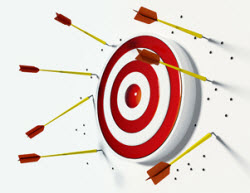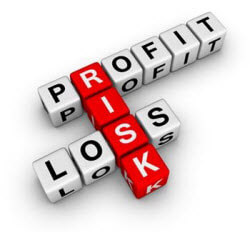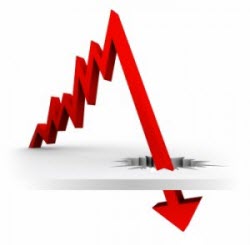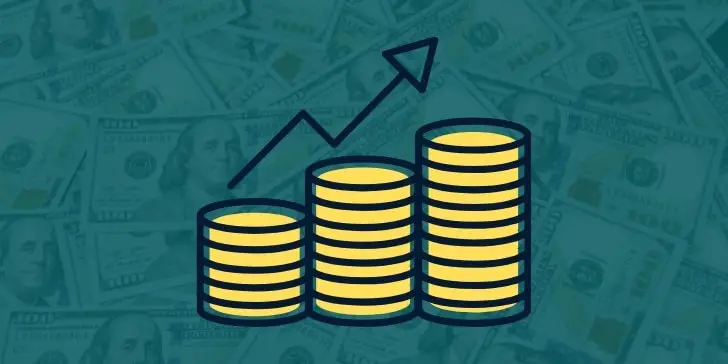Many of us first ventured into trading with thoughts of making it big, firing our bosses, and going on to lead lavish lifestyles. We were dreaming of making our own work hours, and clicking away at some trading platform for a few hours a week to make ends meet and then some.
Frankly, we all deserved the rude awakening that we got. What I just described is no more than a dream for most people. Is it possible to achieve? Sure. Will the average trader ever achieve that dream? Not likely.
Most traders simply do not have what it takes. They are unwilling to treat trading as a serious and demanding profession, and will never put in the amount of time and effort necessary to make such a challenging endeavor work for them.
However, there exists a small percentage of determined traders who will not give up, even after multiple failures. For them, financial freedom through trading is an achievable goal. Some of those traders may actually find themselves trading for a living in the not-so-distant future, or at the very least, earning a nice profit from their trading accounts each year.
If you too are truly serious about being a profitable trader, then there are (at least) 7 things that you must accept to make it in this dog-eat-dog business:

1. Expect a Realistic Strike Rate
You’re not going to win every trade that you take. You will have to accept that over the long term, at best, only 60% of your trades will be winners. Depending on the strategies that you use, your strike rate could be much less than 60%.
That means that, even with a 60% strike rate, you are going to lose 40 trades out of every 100 trades that you take. Most traders will lose much more often. How you deal with losses and how you take advantage of winning trades is going to make all the difference.

2. Successful Trading is not Gambling
When I think of a “gambler,” I think of a loser – someone who risks more money than they should in hopes of a big payout that rarely comes. I know lots of friends that have won some money gambling only to give it all back next weekend because this type of payout is not a regular occurrence.
You cannot expect to maintain consistent profitability in trading with a gambler’s mindset. You must accept that the key to achieving success in trading is losing small and hopefully earning bigger wins (unless you’re a scalper).
Success does not come from having big bets occasionally pay off. Making big bets (or overleveraging) is a great way to wipe your account out after the first, inevitable string of losses comes.

3. Risk Control is Key
The only time you truly have control of your trading capital is when it is not in the market. No trader has a crystal ball that will tell them which trades will be winners and which trades will be losers. Great traders are great risk managers.
Accept that to be a successful trader yourself, you must become an expert at controlling your risk. You must accept that taking smaller trades (consistently risking the same 1% to 2% of your account on each trade) is one of the most important keys to successful trading.
Use stop losses on every single trade, and never lose more than you have predetermined is acceptable. Only after learning proper money management skills can your wins really begin to work for you.

4. Consecutive Trading Losses
Periods of drawdown happen no matter what trading strategies you are using. Consecutive losses are simply part of the trading game.
Accept that you could have 10 trading losses or more in a row, and this could happen to you a few times each year. Are you risking too much of your account on each trade? What will your account look like after a string of consecutive losses like this?
This is certainly not a guarantee. In fact, I can’t remember the last time that I lost 10 consecutive trades, but that doesn’t mean that it couldn’t happen.
Especially when you are just starting out, you should prepare as if this is a certainty. It very well may be, until you have mastered your craft.

5. Know When to Change
Accept that you will be wrong – a lot. From losing trades to losing trading strategies, knowing when to admit defeat and cut your losses is important.
This does not mean that you should go system hopping every time your trading system loses a few trades, though. Every trading system will produce some winner and losers. You will never know if your particular system is truly a dud until you take a sizable sample of trades using its rules.
At the same time, you must know how to track your performance and cut the losers out of your repertoire. Failure to do exactly that is the definition of insanity.

6. Trading is Hard Work
You are not going to get rich quick by trading. If you truly believe that’s possible, you should just flush all of your money down the drain right now. The end result of your trading experience will be same.
Accept that trading is not easy and that it requires a lot of work just to become profitable. Most traders never get that far – much less rich.
If you really want to become a professional trader or even a profitable trader, you are going to have to treat trading just like any other skilled profession. Realize that it takes lots of effort, determination, and time (even years) to become proficient at trading.

7. Learning to Trade is Costly
Accept that you will be working for free for a while. You will be spending a lot of time learning strategies and staring at trading charts, and if you’re lucky you’ll only not make money – as opposed to losing money.
I always recommend that new traders, or traders learning new trading methodologies, become experts at their strategies by demo trading (or paper trading) before risking their real capital in the markets. This can ultimately save you a lot of money, but you will still pay with plenty of your time.
Whether you end up paying tuition to the market in the form of losses, or you spend hours of your free time in front of a trading chart, your trading education will have a price. The question is, “Is it worth it to you?” For some of us, the answer is a determined, “Yes.”
These 7 things each trader must accept to trade profitably are certainly not all that a trader needs to learn, but they are a good place to start. Successful trading is a combination of profitable trading strategies, money management, psychological control, focus, perseverance, passion, time, and dedication. If you are missing just one ingredient, you may not make it as a trader.




Good post. I imagine that these same ideas can apply to day trading stocks, futures, or whatever. Do you log every trade that you do, and then review it weekly? Also, how do you recommend one make a trading plan?
Yes, Justin! I trade stocks and stock options from time to time as well, and these rules apply in any market you choose to venture into.
Yes again. Reviewing your trades at the end of each week will help you eliminate your own mistakes as a trader. It allows you to see your bad habits more clearly. I think it is essential, and would recommend adding screenshots of your chart (at the time of the trade, and even a follow up if you have the time) as well as a brief description of why you took that particular trade.
As far as a trading plan goes, you need to know how to do something that is statistically profitable. It take time to know if any particular trading system or technique is truly profitable, and you must know your own limitations as a trader (goes back to your journaling). Once you’ve got that, you must be consistent with your trading system, and expect drawdown (all systems will go through it, and it turns a lot of new traders off of good strategies). Good luck!